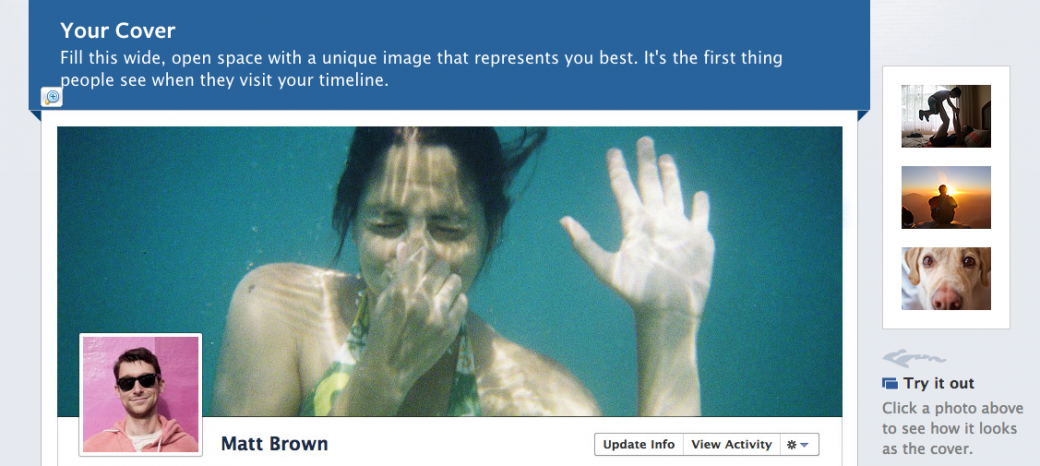Here’s a paragraph from a book I’m reading about the power of images in the Roman empire. People were pretty much using images of themselves doing cool stuff (cooler than their neighbours) to establish their own brand. Their own significance. Their own place in the great pecking order of life.
The disintegration of Roman society created individual rivalries and insecurity that led to exaggerated forms of self-promotion even among people who had nothing to gain by it. What began as a traditional agonistic spirit among the aristocracy denigrated into frantic displays of wealth and success. But the scope of opportunity for such display was often still rather limited. P. Zanker, The Power of Images in the Age of Augustus, 15
Sounds a lot like now. Except we have Facebook.

Image: A screenshot from Facebook’s “Timeline” page
Using Facebook to glorify something other than yourself and your curated life is pretty hard. Even the links we share about stuff that we’re passionate about tends to be stuff that tries to make us look good. Check out this TechCrunch article that may as well be titled the hypocrisy of our use of the Internet, but is actually titled “Sex is more popular than Jesus on Google” (for some depressing confirmation – try going to google and watching the autocomplete results for “I’m 10 and” and then adding a number until you get to your 50s, 60s, or 70s…).
The TechCrunch article features this series of snippets from a presentation the guy who made buzzfeed (Jonah Peretti) gave at a conference today.
When you look at google searches, he says perhaps unsurprisingly, “sex is more popular than Jesus on google.” Compare the search terms “diet pills” and “Arab spring,” diet pills win. Obviously, this isn’t what Larry and Sergey had in mind when they started Google.
We use Google to search for secret things, to investigate what other people are saying about our deepest darkest secrets, interests and curiosities. Google Image search is filled with pictures of pets doing hilarious things, while Google search serves up results on the great ocean of porn out there on the Web.
Facebook, on the other hand, is a projection of our social relationships and behavior. Together, they generally represent and are a metaphor for the two ways we use the Internet. On Facebook, the same person who is looking at stories involving nude pics, is also looking at and sharing inspiring stories about victims overcoming disabilities and so on, along with politically-motivated stories.
My goal for the next little while is to practice something like the 80/20 rule – where 80 percent of the stuff I post isn’t about me and how great my coffee life is – but about how thankful I am for Jesus, and how thankful I am for other people. And the other 20 percent of stuff is authentically me – not the curated me. I’ll try to be interesting, and not just reflect on my toast (unless it’s a really cool instagram shot of my toast. No wait. That’s doing it again).